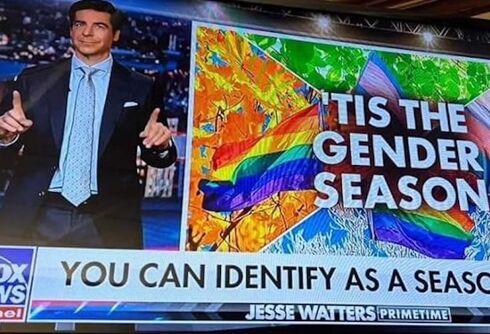“(it) seem(s) easiest, but also… attention seeking.”
“Its the person’s life the opinion of others should not matter… if coming out on a social network is what they want to do then fine.”
“(it’s) completely disingenuous to the gravity of coming out.”
These are just a few answers to the question a friend posed to me two weeks ago: “Should I come out on Facebook?”
Never Miss a Beat
Subscribe to our newsletter to stay ahead of the latest LGBTQ+ political news and insights.
 I stand by my initial response: it depends on why and how you do it, but overall it can be a worthwhile means of coming out. It gives you a sense of control, an ability to present the information in a premeditated way, and a large audience to speak to. So I say, if done appropriately, why not?
I stand by my initial response: it depends on why and how you do it, but overall it can be a worthwhile means of coming out. It gives you a sense of control, an ability to present the information in a premeditated way, and a large audience to speak to. So I say, if done appropriately, why not?
Nevertheless, I sought others’ opinions, by asking my Facebook friends and twitter followers, since my coming out experience was devoid of Facebook interactions (aside from ‘liking’ Lady Gaga, Robyn, and HGTV on Facebook – three ‘blatantly obvious’ signs I was a homo).
Their answers, especially my gay friends,’ surprised me.
The major trends are telling. Of those who responded, most straight girls support the notion of being out and coming out on Facebook. While (to my astonishment) most gay males don’t support coming out on Facebook, straight guys adamantly support the idea of doing “whatever the hell you want.”
This begs the question: isn’t the notion of coming out simultaneously to 1000+ of your acquaintances, friends, family members, and peers in a way that you can tailor and control an attractive option?
Article continues below
If this is the case however, even I disapprove. Once again it comes down to the reason you are coming out, and the way you do it.
Consider these scenarios:
- You’re outing yourself on Facebook to spite your parents.
Think twice before you act. Coming out is memorable, but something many of us cherish for both the bad experiences as well as the good. Ask yourself if you are really willing to sacrifice a more memorable and meaningful coming out just to get back at your (homophobic?) parents or community.
- You are confident in your sexuality, you have told your close friends/family already, and you want everyone to know.
Go for it. Would I recommend posting “I’m a homo!”? No.
I hope that you will articulate your particular understanding of what being gay means to you. Explain why you are coming out, why you choose to do so in such a visible fashion, and give them a clue to the response you desire: whether it’s to ask you any questions privately, if you want there support in the upcoming days, or if you want them to treat you as if nothing changed (which may never happen, and that’s okay.)
Recognize it, accept it, and learn to enjoy it.
- You want to come out online to avoid conflict.
Understand that conflict will arise no matter what you do. Accept it. Prepare to deal with it. Surround yourself with people who will pick you up if and when you realize you can’t do it yourself. And remember that conflict isn’t a bad thing. The friction that conflict creates is just the force that motivates some to change, to grow, to accept.
Looking ahead – even into tomorrow or next week, to see what issues may arise, can help give you some perspective on your coming out strategy. When people find out they will be curious and they will have questions. Consider this as an opportunity to spread some awareness. Be honest in your responses and wield it as a chance to move forward, both for yourself and your community.
- You want to come out online to better control the situation.
Coming out rarely goes as planned and while you can hope to orchestrate every aspect of it (I surely tried), sometimes the fun can be in the the spontaneity of it. Be willing to use facebook as much as you want.
Draft your statuses, prepare your responses, even give some friends the heads-up so they can help you prepare, but understand that you can’t control everything after you click ‘post’. Let that desire go. It will drive you crazy, and in my experience you’ll be better off just going with the flow. Providing a first-hand account of what you’re doing and how you feel seems to help, but don’t expect to micromanage every aspect of your coming out.
- You only want specific ‘friends’ to know.
In case you are friends with a large population involving people you don’t want to clue into your sexuality, coming out on Facebook may require more work. Your options span from altering your privacy settings for those ‘friends’ you don’t want to receive your coming out message, to deleting them as friends entirely.
Article continues below
Another option is the change your “interested in” profile and delete the information from your news feed. This allows everyone the chance to see your sexuality but if they don’t go digging for that information, they will never know. Often times, family members will overlook this aspect of your profile if they have no reason to question it previously.
The reader who asked me this question came out on Facebook, despite others’ concerns. His Facebook page shows no signs of bullying. He appears to be accepted, and is happy with his choice.
Is it right for everyone? Certainly not. But it was for him, and though perilous, it’s an option worth considering.














Should I Come Out on Facebook?